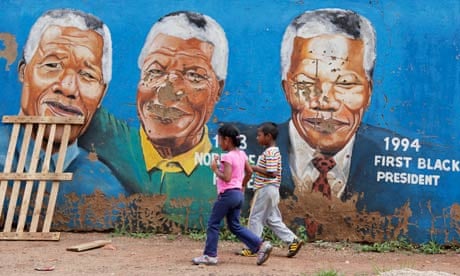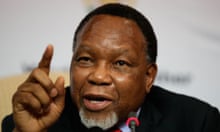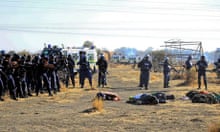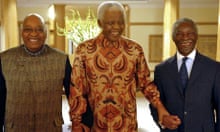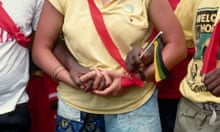Nelson Mandela is suffering from the recurrence of a lung infection, officials said on Tuesday, as South Africa continued to pray for the 94-year-old statesman's health.
Mandela has been undergoing medical tests since Saturday at a military hospital near Pretoria.
"Doctors have concluded the tests, and these have revealed a recurrence of a previous lung infection, for which Madiba is receiving appropriate treatment and he is responding to the treatment," said presidential spokesman Mac Maharaj, using Mandela's clan name.
"President [Jacob] Zuma thanks the public for continuous support to former president Mandela and his family at this time."
The announcement ended speculation about what was troubling South Africa's anti-apartheid hero and first black president. Government officials had repeatedly declined to say what caused the military, responsible for Mandela's care, to keep him in hospital for four days.
Ndileka Mandela, his eldest grandchild, admitted she has "no idea" when he is likely to be discharged. "He's still well," she said on Tuesday. "We just want to be left alone as a family to process."
George Bizos, a lawyer who defended Mandela in the Rivonia trial half a century ago, said he had learned of his friend's lung infection from family members before it was made public. "I accept the integrity of the medical team looking after him. They have managed the condition in the past and I trust they will succeed again."
Bizos conceded is it hard to be certain about the health of a 94-year-old, but added: "We wish him well and he's in good hands. We hope he will soon be back home at his house in Johannesburg or his house of preference recently, Qunu [in Eastern Cape province]."
As in previous health scares, developments have been followed intensely by South Africans and the media. "Nation prays for Madiba," was a front-page headline of the Sowetan newspaper.
In January 2011, the Nobel peace prize laureate was admitted to a Johannesburg hospital for what officials initially described as tests but what turned out to be an acute respiratory infection.
The disarray and information vacuum that followed prompted the South African military to take charge of his care while the government controls updates about his health.
Mandela has had a series of health problems during his life. He contracted tuberculosis during his years in prison and had surgery for an enlarged prostate gland in 1985. In 2001, he underwent seven weeks of radiation therapy for prostate cancer.
In February this year, Mandela spent a night in a hospital for a minor diagnostic surgery to determine the cause of an abdominal complaint.
Dr Mark Sonderup, the vice-chairman at the South African Medical Association, told the Mail & Guardian newspaper this week: "I'm not sure we should press the panic button every single time a man of his age has the sniffles. But unfortunately, we have to accept that simple health matters for a person of that age can turn very serious, very quickly."
Mandela made his last public appearance when his country hosted the 2010 football World Cup.
